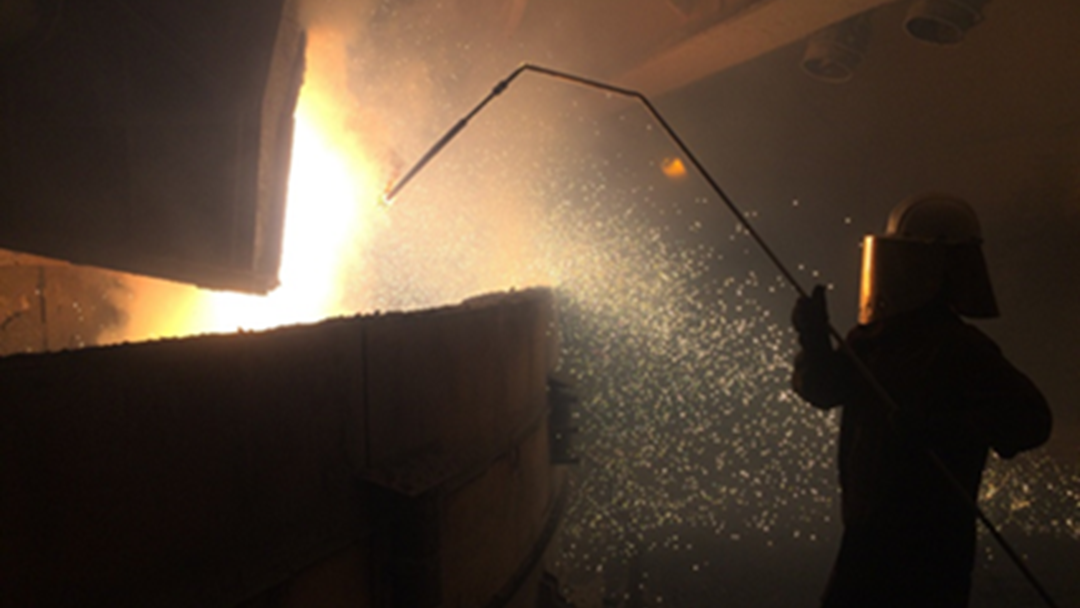- Name
- Merete Tangstad
- Title
- Professor (Project leader)
- Organization
Controlled Tapping
In the metal producing processes, hot liquid metal will be tapped from the industrial furnaces. In this project NTNU and SINTEF, with the Norwegian industry, determine the fundamentals affecting the tapping operation. (Duration: 2017 - 2022)

The metal producing industry in Norway contribute to large export values, increase in value of the Norwegian energy as well as advanced technological knowledge. A major part of the metal produced in Norway is ferroalloys and silicon. These metals are produced in industrial furnaces at high temperatures, and molten metal is tapped. After the furnace, the metal is cast into moulds before its crushed and shipped to the customers.
The tapping process is an important subprocess. Deviations in the tapping process leads to a higher energy consumption, less metal yield and consequential security risks. A huge part of the knowledge surrounding the subprocess is based on experience, and the goal of this project is therefore to improve the tapping process through a close cooperation between NTNU, SINTEF and the industrial companies involved.
Advanced modelling of tapping shows how slag and metal exits the tapping hole mixed, and how metal and slag separation is affected by varying tapping parameters. Through MSc projects in cooperation with SINTEF it has been discovered that the temperature in tapped metal is substantially higher than previously believed for FeSi and Si. PhD projects has given a new method for measuring wetting between slag and metal, and it has been observed that slag tapped from Si-furnaces are enriched in CaO and Al2O3. The SiO production rate is not affected by the quartz source, but very dependent of the temperature.
Project duration: 2017 - 2022
Publications: Controlled Tapping

The project is funded by the Research Council of Norway

